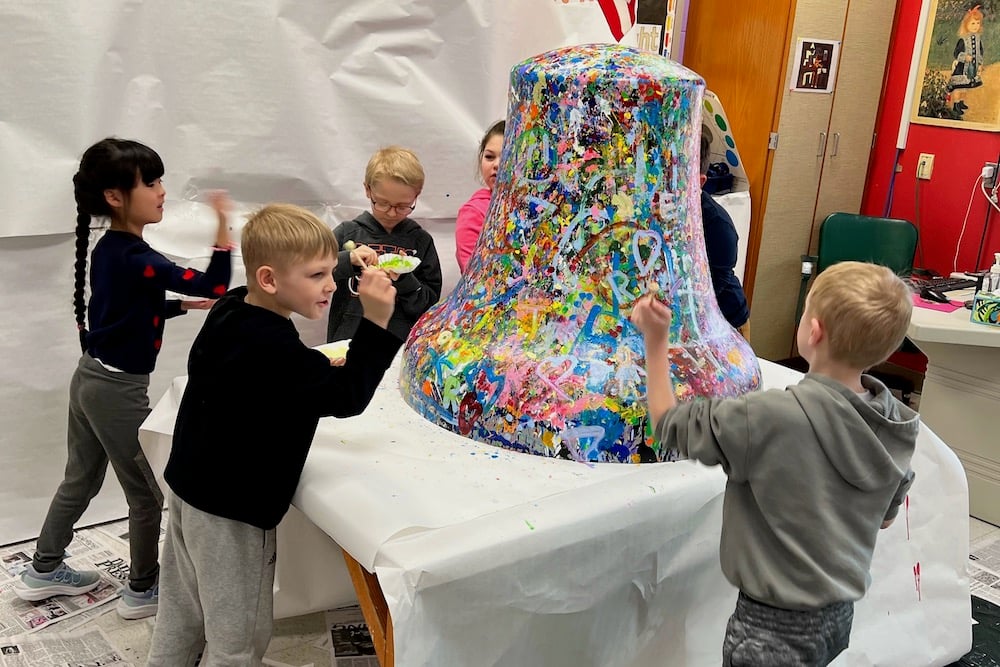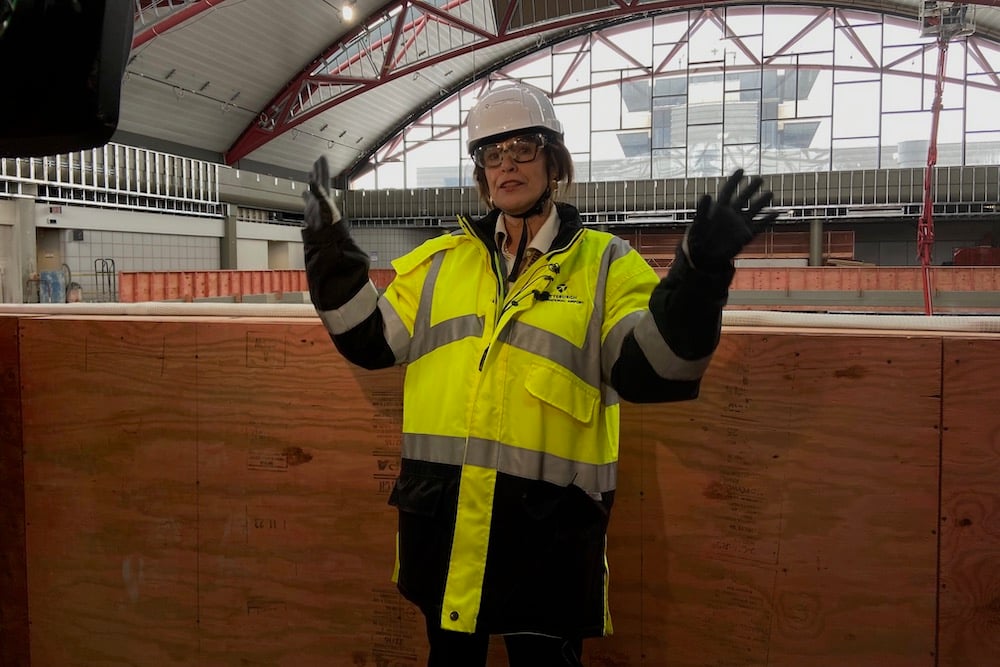Pittsburgh Exhibit: Explaining the Science Behind Mental Health
A traveling 'Mental Health: Mind Matters' exhibit will be at the Carnegie Science Center through Aug. 17.

THE EMOTION RECOGNITION GAME IS ONE OF MANY INTERACTIVE ACTIVITIES THROUGHOUT THE “MENTAL HEALTH: MIND MATTERS” EXHIBIT AT THE CARNEGIE SCIENCE CENTER TO LET VISITORS BETTER UNDERSTAND HOW DIFFERENT FEELINGS LOOK. | PHOTO BY CASSANDRA HARRIS
Mental health is a pressing issue in science, and a new exhibit at the Carnegie Science Center is proving just that.
The exhibit called “Mental Health: Mind Matters” shares five individual mental health stories and breaks them up into interactive and digestible parts.
A worry shredder in the middle of the exhibit allows visitors to write down concerns and literally shred them away. Another area allows a guest to sit and experience a simulated sensation of psychosis, or auditory hallucinations while attempting to have a conversation. In addition to learning about mental health history and how it’s been treated through the ages, visitors can also learn about what parts of the brain cause certain mental health conditions.
“We wanted to give our visitors the opportunity to really explore the science behind mental health,” says Jason Brown, the Henry Buhl, Jr., director of the museum.
One in five adults in the United States experience some form of mental illness, he says. Comparatively to Pennsylvania’s population, that means 1.8 million adults in the commonwealth live with a mental health condition.
That includes children. And although Brown says that it’s important to talk about this topic with all ages, the exhibit is not recommended for children under age 11. Trigger warnings in certain areas are placed to make sure that visitors understand that, if they’re going inside with young children, they should show extra care and caution.
Different areas discuss depression, anxiety, bipolar disorder, eating disorder, depression and dissociative identity disorder.
Specific areas designed for younger audiences include an emotion-recognition game, a dance area that encourages mood-improving physical activity and an area with masks that show how different body language can signify mood.
Additionally, a mental health resources book nook includes a bin with puppets and children’s books. In this area, various community health partners will be onsite during the run of the exhibition.

THE WORRY SHREDDER, LOCATED NEAR THE MIDDLE OF THE EXHIBIT, ENCOURAGES VISITORS TO LET GO OF THEIR WORRIES AND WOES BY WRITING THEM DOWN, FEEDING THEM INTO THE MACHINE AND WATCHING THEM GET RIPPED AWAY. | PHOTO BY CASSANDRA HARRIS
With the concerns about mental health, Brown says that it wasn’t difficult to find so many community partners.
“People sometimes think about health as, you know, physical exercise or eating right? But mental health is just as important, if not more so,” he says. “There’s become, over the last few years, really widespread appreciation for that fact.”
Other local groups making presentations later during the run of the exhibit include the Carnegie Museum of Art, Crisis Center North, Jewish Family and Community Services, the Pittsburgh Pirates, Teen SCREEN Study, Casa San Jose and Steel Smiling.
The “Mental Health: Mind Matters” exhibit was developed by the Science Museum of Minnesota, in collaboration with the Heureka, The Finnish Science Centre, and is located in the center’s traveling exhibition gallery. It will be at the museum through Aug. 17, and attendance is included in the general admission.











